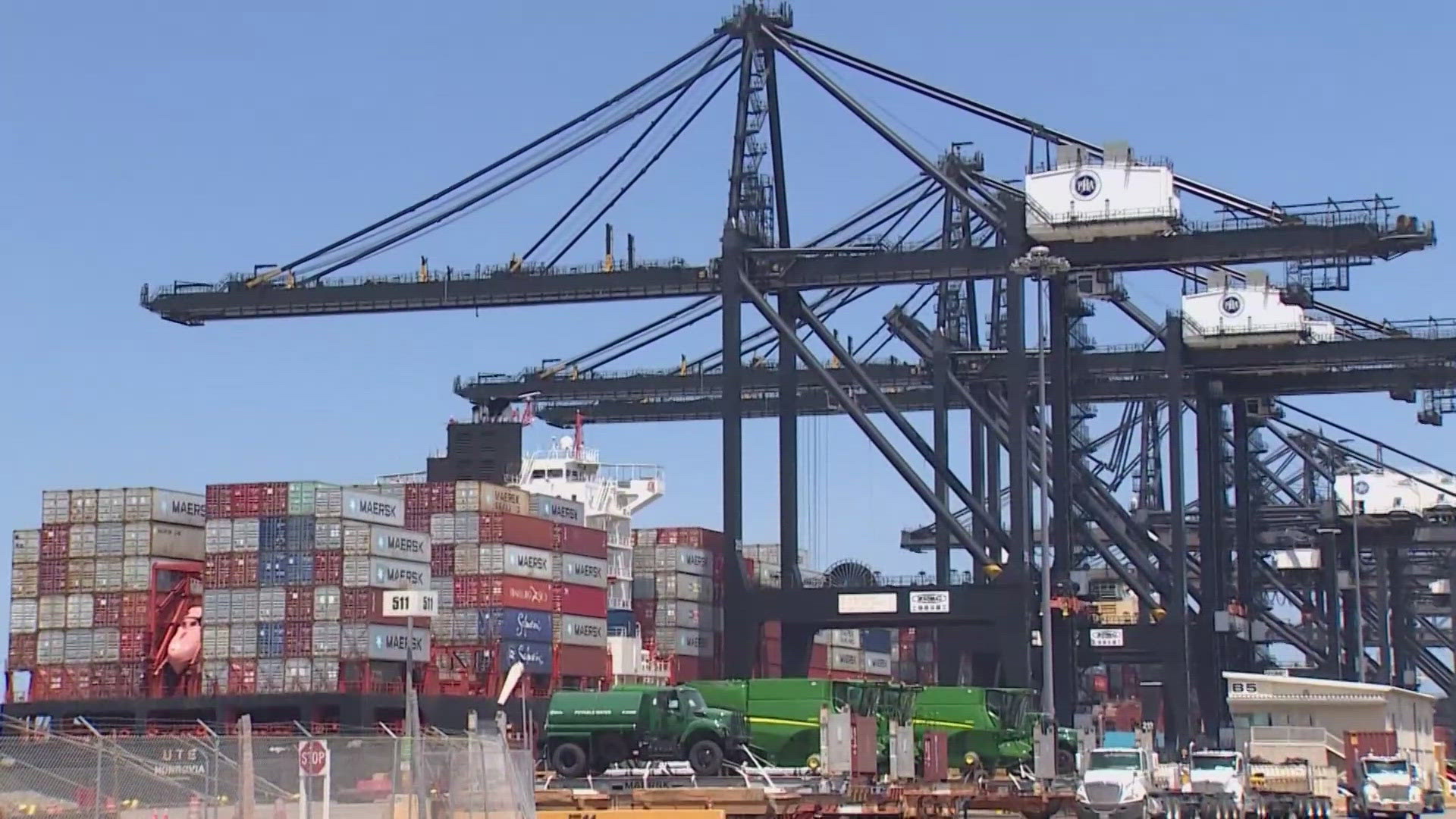HOUSTON — There are just days left for a costly strike to be avoided which could result in billions of dollars in economic impact across the country.
The U.S. Maritime Alliance (USMX) and International Longshoreman's Association (ILA) have until the end of the month to reach an agreement on a new contract to avoid a strike.
The USMX represents companies that move cargo at ports and the ILA represents more than 40,000 workers who are employed at Gulf Coast and East Coast ports from Brownsville, Texas to Maine.
The ILA is pursuing higher wages and protections from automation.
"My ILA members are not going to accept these insulting offers that are a joke considering the work my ILA longshore workers perform, and the billion dollar profits the companies make off the backs of their labor," ILA International President Harold Daggett said in a statement this week. “The blame for a coast-wide strike in a week that will shut down all ports on the Atlantic and Gulf Coasts falls squarely on the shoulders of USMX."
USMX, however, said this week the two sides have been unable to sit down for negotiations.
"Despite additional attempts by USMX to engage with the ILA and resume bargaining, we have been unable to schedule a meeting to continue negotiations on a new Master Contract," the group said in a statement. "Our goal remains the same -- we want to bargain and avoid a strike, but time is running out if the ILA is unwilling to return to the table.”
Ports on the West Coast would not be impacted but experts warn even a short-term strike would have major impacts.
"For each day of a potential strike, it's estimated that it'll take four to six days to clear up that cargo," Margaret Kidd, a supply chain expert at the University of Houston, told KHOU 11.
Kidd said each day of a strike could cost the U.S. $5 billion.
According to the American Apparel & Footwear Association, 53% of all U.S. apparel, footwear and accessories imports go through ports on the Gulf Coast and East Coast, amounting to about $92 billion.
Kidd adds many kinds of goods would be impacted.
"Certainly perishable goods, fresh fruit, meat and then automotive supplies and parts," Kidd said. "That will impact manufacturing in many parts of the country."
But Kidd notes the situation would be different than the supply chain issues faced during the pandemic and consumers should not have to rush to stores to stock up.
"I want to discourage anyone from hoarding," Kidd told KHOU 11. "This is not going to be like Covid where there really were huge delays. We could see some delays up to several weeks to several months. But I think we've we've dealt with some of the resiliency issues as lessons learned during Covid."
Port Houston is not involved in the contract negotiations but said in a statement it is monitoring the situation closely and that if there was a strike, Barbours Cut and Bayport Container Terminals would be closed until a new contract agreement is announced.

